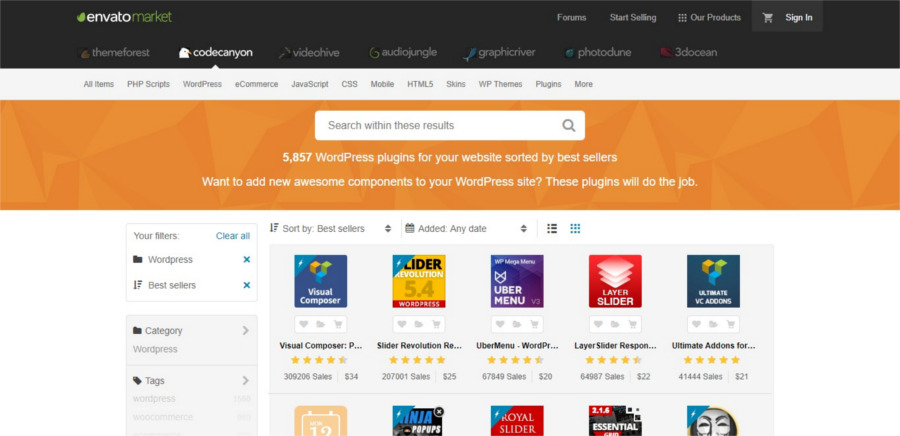Entrepreneurs and startups are often brimming with innovative ideas but constrained by limited financial resources. In the grand scheme, it’s widely recognized that establishing an online presence is pivotal for transforming these ideas into profitable ventures. A website serves as an economical and accessible platform for startups to articulate their concepts, delineate the roadmap for realization, and keep all involved parties abreast of the progress. It inherently lends credibility to the endeavor by providing essential details like name, address, and contact information.
Beyond being an informative hub, a startup’s website becomes a nexus for outreach during its nascent stages, connecting with potential job seekers, investors, suppliers, and early customers. It acts as a focal point for generating anticipation leading up to the launch day. As the venture gains traction, the website seamlessly transitions into a 24/7 marketing hub, ensuring continuous engagement with stakeholders. Amidst the plethora of Content Management Systems available, the challenge of choosing the right one looms large. This discourse delves into 13 compelling reasons elucidating why WordPress stands out as a prudent choice for startups and entrepreneurs.
1. WordPress is Reliable
WordPress is a tried and tested open source platform that’s supported by a community of thousands of professional coders, testers, and developers. At present, it’s the leading Content Management Service on the internet. It’s been around for 10+ years, used by millions of websites and undergone a great deal of refinement. Not only that, WordPress relies on sound technology like PHP, SQL, and JavaScript that follow the practices set by Google, and other search engines.
What does all this mean? You can conclude that, unlike many competitors, WordPress is going to be around for much longer and grow as a platform.
2. WordPress is Free
What can sound sweeter to a cash strapped startup than the fact that WordPress is free? At the same times it raises the question – what’s the catch? Similar to Wikipedia and Ubuntu, WordPress is free because it’s open source, meaning it’s not owned by anyone. It’s backed by both a billion dollar company Automattic, as well as by thousands of volunteers from all over the world who work to improve it constantly.
WordPress is licensed under the GNU General Public License. This makes it free for anyone to use it to build as many websites as they want with WordPress. Moreover, WordPress users also get access to free updates, thousands of free themes, as well as 50,000+ plugins in the WordPress directory. The off-the-shelf free themes and plugins ensure that users get off to a head start, thereby saving time and money.

However, let’s get one thing clear – WordPress the software is free and so are thousands of themes and plugins. But that does not mean you can run a website at Nil cost. There are other expenses attached to running a website like domain name, hosting, optional customizations and you can find out all about the costs of building a WordPress site on our blog. These costs are not unique to WordPress but applicable to other Content Management Systems as well.
3. There’s No Lock in With WordPress
At the beginning, many enterprises are uncertain about the technologies and software required for their website and are reluctant to spend on software that they are not sure of. Besides, they’ll be tied to the software service provider for ongoing updates and maintenance. Moving to a different platform at a later date can get messy, as in most cases all the data gets locked to the old software.
Luckily, that’s not the case with WordPress — your data is your own on a self hosted WordPress install. So you can choose to migrate from WordPress to any other platform with all your data intact. Besides, there’s a large pool of WordPress talent to help you get along.
4. Whatever Your Business, WordPress Can Handle the Website for It
Let’s put this bogey to rest once and for all, WordPress is not just for blogs. Yes, it started off as a blogging platform but it has since evolved to serve as a platform for any kind of website. You can use it for,
- Corporate or Business websites
- Portfolio websites
- Online shops
- News sites
- Membership sites
- Hotel websites
That list is just illustrative. You can also build websites for NGOs, forums, apps and even make money with a WordPress website. And you have the added advantage that WordPress has a blog function that you can use alongside your website.
5. WordPress is a Pro at eCommerce
The popular WooCommerce plugin is the leading eCommerce technology for the web, and can power any eCommerce venture. If you need even more functionality for your store, you’ll be glad of the hundreds of free and premium extensions that can extend your online store. WooCommerce can easily get you started with selling any product or service. And, if it’s downloadable products that you’re selling, the Easy Digital Downloads plugin will help.
6. WordPress is Mobile Friendly
The number of people accessing the internet using mobile devices has overtaken the number accessing via desktops. Besides, you should know that when it comes to mobiles, Google doesn’t take kindly to websites that are not mobile friendly.
Not to worry, WordPress has you covered. While the technology used by WordPress itself is compatible for building webpages for mobiles, WordPress also has a number of free and premium themes that scale automatically to the size of the user screen. There are official iOS and Android mobile apps that can render WordPress pages on mobiles. If, for any reason, you’ve not made your website responsive, you can do so subsequently as well.
7. WordPress is SEO Ready
WordPress is search engine friendly out of the box. And it’s endorsed by a person no less than Matt Cutts, formerly with Google. WordPress takes care of the better part of search engine optimization.
Not only that, there are numerous plugins that help to get your SEO right. However, it’s important to remember that search engine rankings depend on much more than CMS alone. And, you can be fairly certain that if you’re slipping in rankings, it’s not on account of WordPress as your CMS.
8. WordPress is Extensible with Plugins
Different websites have different needs. Some may want to sell products, some may want interactive communities, while others may want a perfect landing page. WordPress offers a basic platform for all kind of websites, allowing them to add the functions they need as they go along. These functions are added by way of separate plugins. If you wish, you can add functions with custom coding as well.
In the WordPress plugins repository, you get to choose from more than 50000 free plugins to fulfill most of the functions that you need. Besides the free plugins, there are third party premium plans that you can dip into. This makes WordPress a highly extensible platform.

For a person starting off with a new business, the free plugins are not only a great addition to their website, they can add functions as and when the need arise without having to plan for every requirement at the start. For example, you may not need a Live Chat on your website at the start, but if the need arises later, you can simply add a plugin for this function later on.
9. WordPress Can Scale with Your Business
Most startups are not sure about their growth at the start. They run a tight ship, keeping things low key. But they need the room to scale and grow if their idea takes off in a big way. WordPress is an ideal fit, as it allows them to start small and then scale up to run even enterprise level organizations that span many countries and continents. The Walt Disney Company and Mercedes-Benz runs its website on WordPress. You can use WordPress on almost any server with a basic shared hosting plan to high end dedicated servers. It works for small blogs and huge enterprises equally well.
10. WordPress is Secure
Security is a major concern for any website, especially where monetary transactions or sensitive information is involved. The fact that big and famous names like The Obama Foundation, and NGinx use WordPress should reassure you that WordPress is a safe platform.
What you should know about security is that no platform is 100 percent safe, with hackers on the prowl always. The increasing popularity of WordPress also makes it a favorite target for hackers. But with WordPress you’re relatively safe. That’s because the team at WordPress is constantly monitoring for security threats. The widespread and proactive WordPress community is also quick to report security issues. Security updates are released promptly and what’s more, by default the minor updates are carried out automatically.
What’s also important is that as a user, there are many things you should do to keep your website safe such as choosing a reliable host, going with strong usernames and passwords, selecting quality themes and plugins and updating WordPress regularly. And to be extra safe, you can install security plugins and back up your website regularly. Therefore, in the hands of responsible user, WordPress is a secure platform.
11. WordPress is User Friendly
If you ask me to pick my favorite feature about WordPress, I’d pick its user friendliness. Without knowing any code, you can create webpages from a user friendly interface. Working with WordPress is as easy as working with any word processor. Sure, it helps if you know some basic coding, especially when you have to troubleshoot. But even in such situations, you’ll find that there are WordPress courses, training videos, podcasts and blogs to help you out. WordPress excels at Do-it-Yourself. Even newbies can easily create content. Moreover, WordPress supports images, audios and videos and manages media files effectively. You can also embed third party content such as YouTube and Vimeo.
12. WordPress Enables Smooth Workflow
WordPress has many built-in user roles each with its own capabilities. Any member of a team can be granted various levels of access by assigning appropriate user role. And if the built-in user roles are not suited to your team, you can just as easily create a new user and assign them the privileges you want. If it’s a multi author blog that you work with, managing the editorial workflow becomes easy with WordPress.
You can also equip your WordPress website with advanced behavior and create a number of applications. By using custom fields and conditional logic, you can automate a number of WordPress tasks.
13. WordPress Helps with Branding
While the default WordPress webpage may appear somewhat standard, most of the available themes offer tons of customization options that allow you to align the webpages with your brand. Colors, logos, fonts, almost every element can be customized from a customs option panel. The changes can be viewed in live preview mode before you save them. WordPress helps to reflect your brand on the web.
Wrapping Up
All the reasons listed above should give you enough reason to choose WordPress for your website. It’s an ideal option to set up a website quickly with minimum expenditure.
Moreover, WordPress is poised for future growth as well. With the introduction of REST API, there’ll be better integration with third party applications and you’ll see new possibilities opening up.


